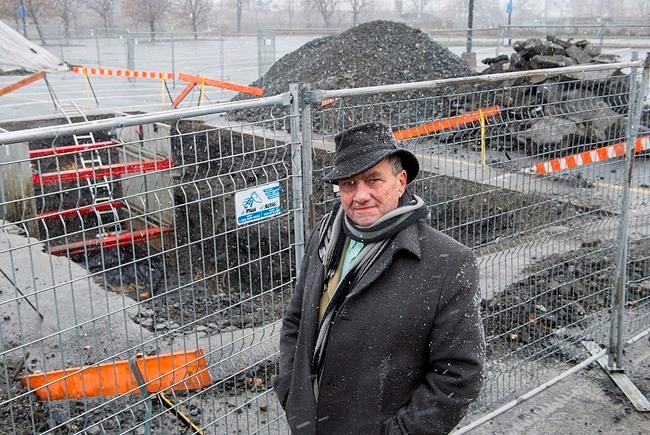MONTREAL — Members of Montreal's Irish community aren't giving up their opposition to the city's decision to name a new light-rail station after a controversial former premier, one of their representatives said Wednesday.
Mayor Valerie Plante announced this week that a station southwest of downtown would be named Griffintown-Bernard Landry, saying the name highlights both Landry's economic vision and the traditional Irish neighbourhood where the station will be located.
But Fergus Keyes, a member of the city's Irish community, says Plante ignored the wishes of the many community groups who had clearly asked that the station's name be chosen to honour the area's Irish history.
Keyes said the groups are considering a variety of ways to keep up the opposition, including demonstrations, letter writing, lobbying other levels of government and even legal action.
"There will be definite opposition, and it will continue right up to the day they put up the sign, and even after they put up the sign up that says Griffintown-Bernard Landry, it will continue after that," he said in a phone interview.
Part of the issue, he said, is that Landry never lived or ran for office in Griffintown, although he helped to create the tech hub just east of it called the Cite du Multimedia.
Another elements is the desire to honour Griffintown's Irish and working-class history, which has been obscured by persistent waves of reconstruction and gentrification.
The United Irish Societies of Montreal said in a news release that its representatives met with Plante in January to express their displeasure with her recommendation to name the station after Landry.
"We will continue to oppose this decision until the Griffintown station and area are given the recognition it deserves without sharing it with a past premier of Quebec," president Patricia Mulqueen wrote in a statement.
Landry, who died in 2018, was known for his passionate dedication to Quebec sovereignty and his sometimes blunt criticisms of Canada, which made him a divisive figure in some circles.
In 2001, before he was premier, he famously blasted Ottawa for insisting that an offer of renovation funding for a Quebec City zoo was conditional on the inclusion of English signs and the Canadian flag.
"We have no intention of selling ourselves on the street for bits of red rag or any other reason," he told reporters at the time.
But Keyes said the opposition to the name isn't based on language or politics, citing instead Landry's lack of connection to the neighbourhood.
He said that while the community had originally mulled station name suggestions that more specifically mentioned the Irish, they've agreed that simply naming the station "Griffintown" would be an appropriate solution.
Historian Simon Jolivet, whose research largely explores the relationships between the Irish and French Quebec communities, said he doesn't feel an "amalgamated" name serves either party.
"It doesn't do justice to either the Irish or to Bernard Landry, because both are only recognized halfway," Jolivet said.
The Griffintown neighbourhood has been important to the Irish ever since some 70,000 of them arrived to the area after fleeing famine in 1847, Jolivet noted.
Some 6,000 died in fever sheds near the St. Lawrence River, while others went on to make their lives in the working-class, industrial neighbourhood, which at one time was the third largest Irish community outside Ireland, after New York and Boston.
In a phone interview, Jolivet said the decision to name a station after Landry in a traditional Irish and English-speaking neighbourhood was bound to create tensions due to Landry's separatist leanings.
However, Jolivet believes Landry made important contributions to Quebec society, and deserves a station named after him elsewhere.
Both he and Keyes believe that instead of sharing a station name with the Irish, Landry's name should be given to one of the other stations, or another landmark in a part of the city where he had more ties.
This report by The Canadian Press was first published June 24, 2020.
Morgan Lowrie, The Canadian Press

